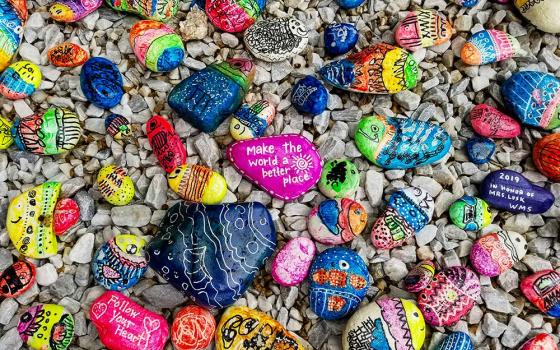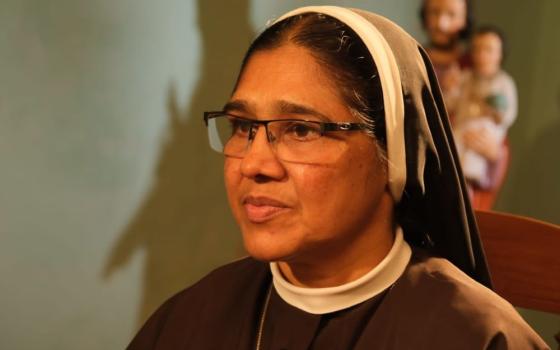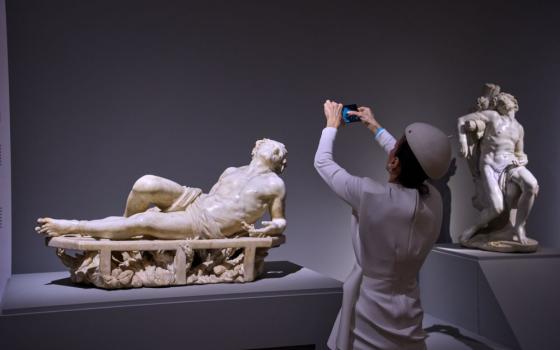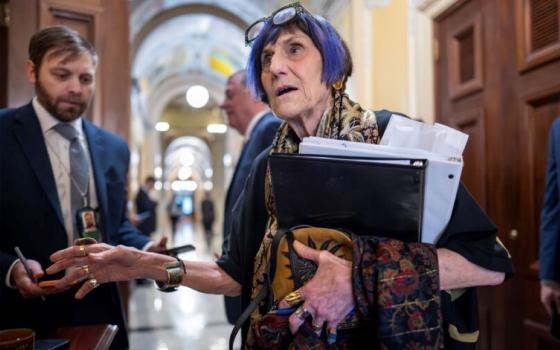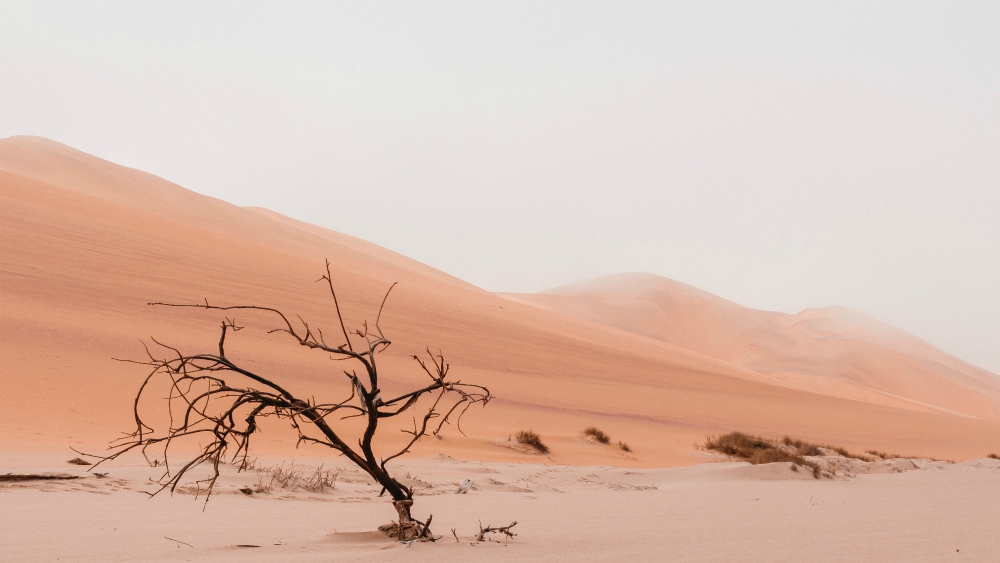
(Unsplash / Ryan Cheng)
How was I supposed to know God was acting in our best interest, when the misfortune occurred? How was I to know God knows best when I was certain my prayer was for health and life — the best for me and my friends and the woman we all called Mother? How was I to accept reality, when I presumed the all-loving God had let me down woefully?
I spent most of my days with Mother and her family, so I somehow considered her my mother, too. And aside from the fact that she was my friends' mother, her actual name was Mother! Who would not love such a woman?
For almost five months, I refused to look this God in the face; I refused to let him love me more in my brokenness; I refused to go to him in prayer. I just didn't want to have anything to do with the "ever-faithful God" whose faithfulness I questioned. My Christian life crawled in the desert.
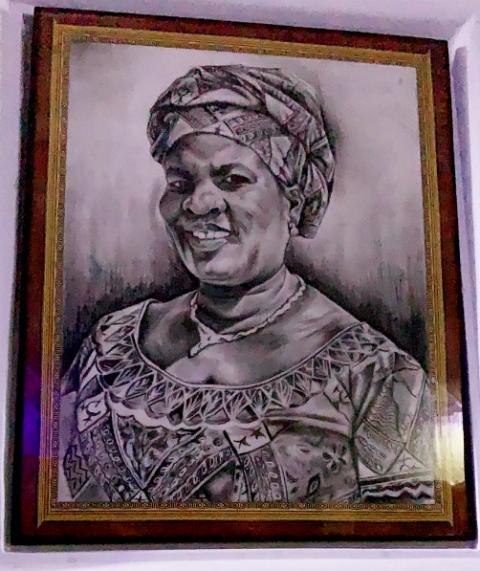
A portrait of Mother, a woman who was mother to all she met (Provided photo)
Five months earlier, my faith had been at its zenith. As far as I knew, it was the kind that moves mountain, that asks and receives, the kind that has its head in the sky gazing directly at the sun. Then we learned that Mother had cancer. Once bubbling with life, she was getting worse and worse. All efforts to heal her were yielding no results. But I knew exactly what to do. An altar for Mother — with her picture standing between Our Lady of Perpetual Help and the Sacred Heart — was the solution.
Each day, I would pour a bit of life into the small flower vase beside the altar. As the water gently poured into the vase, I felt healing grace flowing into Mother's body. No evening came without me sprinkling holy water on her. Each time I sat with Mother by the altar, there would be a kind of joy mixed with tears.
Nightly, I sent my guardian angel Joshua to stay with her to ease her pain. It was Joshua's new task, which he faithfully did. I knew Mother would get back on her feet again, I knew it, I knew she would be well. I had never in my life been so sure of John 14:13 than at this time. The words of Jesus, "And I will do whatever you ask for in my name ...", made a lot of sense. My joy at prayer was because Mother was going to be well. My tears? Not sure.
At 10 p.m. on April 16, 2016, I received the text I'd been praying never to receive, and it read, "Wiafewa, Mother is late." All I said was "OK." There was no pain, no regrets, no disappointments, and no fears. Honestly, I received the message with absolutely no feelings. Wait a minute ... What was that? Denial of emotion? Acceptance of reality? Cooperation with the will of God? An extraordinary ability to let go?
Well ... the silent night ahead would tell. I don't know what woke me up at 2 a.m., but in the wee hours of April 17, Mother's death finally confronted me. I can't find words for that pain. I wept uncontrollably all night. Until that hour, I had never known what real pain felt like.
Five months later, I was still in pain. Aug. 15, during my retreat, was the perfect time to face the pain — and of course to face God at whom I had been mad for five months.
I sat under a mango tree behind the chape1, in tears, focusing on the plants. With whom did I want to speak? The trees? When the Blessed Sacrament was exposed? For me, it was some kind of retribution. I couldn't have dealt with it by having an attitude of "God has given and God has taken." So I thought I would pay God back by staying away from him. I just wanted to be alone.
I started asking the plants: Why did you take her away, why didn't you heal her, why do you leave me and my friends without our Mother? Why cancer, why didn't you give her the strength to stand it, why did you inflict all of us with such tragedy?
I suddenly recalled seeing her for the last time, two years earlier. Mother was happiest when she saw me in habit. She really loved me. So I questioned the plants about why I never had another chance to see her. I had questions plants could not answer. I knew I had to speak with my retreat guide before I started speaking to the wind.
Advertisement
His first words: "Why are you still in pain after five months?" My pain is that my friends are in pain, my pain is that God has let me down. With a smile, Father asked again, "Would it have made you happier to have her live in that condition? And who told you your friends are still in pain?"
I look at my palm intently as if I could find answers there, as he continued, "To tell you the truth, God hasn't let you down, your prayer was answered the best way possible; after all, what is so painful about Mother meeting her maker face to face — isn't it rather a beauty?"
With tears I smiled, a true smile, for the first time in a whopping five months of gloom. Right there, my heart was shaken with a splash of color and surprise. How on earth could I have forgotten God was intimately in touch with Mother during her sickness? I could see her smile as she was being welcomed to her home by choirs of angels and saints — for being the loveliest mother to all the friends of her sons, for welcoming every stranger with a broad smile, for sharing her laughter, meals and home with us, for making all who visited her home feel a sense of belonging, for connecting so much with the young ones that we could talk to her about everything at any time. She was such a great friend, and I acknowledge that she deserves the grand welcome she received in heaven.
This experience got me thinking about how and why we pray. In prayer, we cannot expect God to do as we wish, we cannot afford to mix faith with doubt. My tears at prayer had been of the unexpected and perhaps "unwanted" guest. If prayer is a form of communication, then it's also appropriate to listen to God, who is at the other end of the line. God obviously does things silently at the right time, his time. Even before we approach God in prayer, he has already seen and worked on it.
But how hard it is to play by God's terms! Perhaps it is time to pray for the gift to understand how God works. God has always been good; not even once has he deviated from that. Goodness is God's hallmark. As Soren Kierkegaard says, "The function of prayer is not to influence God, but rather to change the nature of the one who prays." My prayer certainly changed me!
[Sandra Wiafewa Agyeman (Ofia) is a Ghanaian member of the Missionary Sisters Servants of the Holy Spirit. She is currently attending the Institute of Formation and Religious Studies in the Philippines.]


